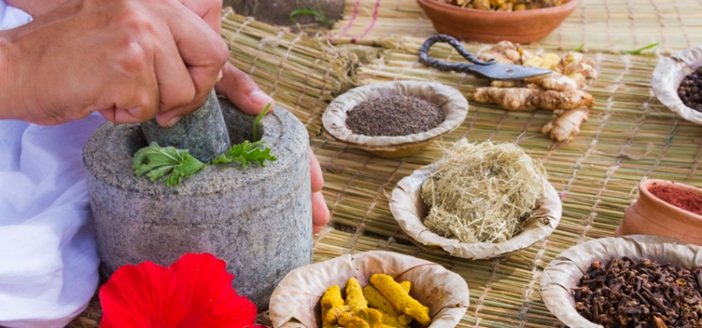
Ayurvedic Medicine for Fever
Fever is one of the most common symptoms that indicate the presence of an infection or other health issues in the body. Whether caused by a viral or bacterial infection, or a sign of an underlying condition, fever triggers an increase in body temperature, which is part of the body’s natural defense mechanism to fight pathogens. While Ayurvedic Medicine for Fever, it often causes discomfort and anxiety, leading many individuals to seek treatment.
In Ayurveda, a holistic system of medicine that has been practiced for over 5,000 years in India, fever (known as “Jwara”) is seen as an imbalance in the body’s doshas—Vata, Pitta, and Kapha. Ayurvedic Medicine for Fever treatments for fever are based on restoring this balance using natural herbs, dietary changes, lifestyle practices, and therapies that work with the body’s own healing processes.
This article will delve into the concept of fever in Ayurveda, its causes, symptoms, and the various ayurvedic medicines for fever, along with dietary and lifestyle recommendations to help manage and recover from fever naturally.
Understanding Fever in Ayurveda
In Ayurveda, fever is considered a Vata-Pitta disorder, which means it is caused by an imbalance in the doshas (Vata, Pitta, and Kapha). These doshas are the three vital energies believed to govern various physiological processes in the body.
- Pitta Dosha: This dosha governs heat, metabolism, and digestion. An imbalance in Pitta is often the root cause of fever, as excessive heat in the body can trigger an elevated body temperature.
- Vata Dosha: Vata governs movement, including the movement of air, blood, and fluids in the body. When Vata is imbalanced, it can lead to erratic changes in the body, contributing to symptoms like chills, body aches, and fatigue, which often accompany a fever.
- Kapha Dosha: Although Kapha is associated with fluid retention and coldness, it can play a role in the onset of fever when there’s an accumulation of mucus or toxins in the body, leading to infections.
Causes of Fever in Ayurveda
According to Ayurveda, fever can arise due to various factors:
- Infections: Fever is most commonly caused by viral or bacterial infections, which disturb the balance of the body’s doshas.
- Aggravated Doshas: As mentioned earlier, fever can occur when the Pitta dosha becomes aggravated, creating an excess of heat in the body. This heat can trigger an inflammatory response, raising the body’s temperature.
- Toxins (Ama): In Ayurveda, toxins called Ama are produced when digestion is weak or improper, and they accumulate in the body, leading to illness and fever. Poor diet, improper lifestyle, and stress can all contribute to the formation of Ama.
- Environmental Factors: Exposure to extreme weather conditions, such as intense heat or cold, can cause fever. This imbalance in the external environment affects the body’s internal harmony.
- Chronic Conditions: Fever can also be a manifestation of chronic diseases such as tuberculosis, autoimmune disorders, or cancer, where the immune system is constantly activated.
Symptoms of Fever
In Ayurveda, the symptoms of fever are classified according to the type of imbalance and the dosha involved. Common symptoms of fever may include:
- Elevated body temperature
- Chills or shivering
- Sweating
- Headache
- Fatigue
- Body aches and pains
- Loss of appetite
- Dehydration
- Restlessness or irritability
- Dry or red skin
- Increased thirst
- Nausea or vomiting (in severe cases)
Ayurvedic Medicine for Fever Treatment
Ayurveda focuses on bringing the body back into balance and addressing the root cause of fever. Treatment includes a combination of herbs, dietary changes, detoxification practices, and lifestyle modifications.
1. Herbal Remedies for Fever
Many herbs in Ayurveda are known for their ability to reduce fever, address inflammation, and boost immunity. Here are some effective Ayurvedic medicines for fever:
A. Guduchi (Tinospora cordifolia)
Guduchi, also known as Giloy, is one of the most revered herbs in Ayurveda for treating fever. It has potent antipyretic (fever-reducing) and immune-boosting properties. Guduchi helps to balance the Pitta dosha, detoxify the body, and enhance the body’s defense mechanisms.
- Usage: Guduchi can be taken as a powder, tablet, or in liquid form as a decoction. It is often used in combination with other herbs like Tulsi (Holy Basil) for greater efficacy.
B. Tulsi (Ocimum sanctum)
Tulsi, or Holy Basil, is an excellent herb for combating fever. It has antibacterial, antiviral, and anti-inflammatory properties that help reduce fever caused by infections. Tulsi helps to purify the blood and detoxify the body.
- Usage: Tulsi leaves can be boiled in water to make a herbal tea, or you can consume fresh leaves with honey for maximum benefit.
C. Ashwagandha (Withania somnifera)
Ashwagandha is a well-known adaptogen in Ayurveda that helps the body cope with stress and promotes overall vitality. It strengthens the immune system and aids in the recovery from fever.
- Usage: Ashwagandha can be consumed as a powder or in capsule form, often combined with warm milk or water.
D. Neem (Azadirachta indica)
Neem is a powerful herb with antibacterial, antiviral, and antifungal properties. It is often used in Ayurveda to treat fevers caused by infections, especially when there is an accumulation of toxins in the body (Ama).
- Usage: Neem leaves can be boiled in water and consumed as a tea, or neem oil can be applied to the body to cool and soothe the skin during a fever.
E. Triphala
Triphala is a traditional Ayurvedic formulation consisting of three fruits—Amla (Indian gooseberry), Haritaki, and Bibhitaki—that are known for their detoxifying and immune-enhancing properties. It helps to balance all three doshas and is effective in treating fever and reducing inflammation.
- Usage: Triphala is typically taken in powder or tablet form, with warm water before bedtime.
2. Dietary Recommendations for Fever
In Ayurveda, food plays a crucial role in balancing the body’s doshas and supporting the healing process. During a fever, it is essential to follow a light and easily digestible diet to help the body recover while not overwhelming the digestive system. Here are some dietary tips:
- Warm Fluids: Drink warm fluids like herbal teas, clear broths, and lukewarm water to keep the body hydrated and promote detoxification.
- Light, Easy-to-Digest Foods: Stick to soft, warm foods such as khichdi (a mixture of rice and lentils), steamed vegetables, and soups.
- Avoid Cold and Heavy Foods: Avoid foods that are cold, oily, spicy, or hard to digest, as they can aggravate the Pitta dosha and worsen fever.
- Fresh Fruits and Juices: Fresh fruits such as papaya, pomegranate, apple, and pear are great choices for providing vitamins and boosting the immune system.
3. Lifestyle Practices for Fever Management
Along with herbal treatments and dietary changes, Ayurveda recommends certain lifestyle practices to help bring the body back to balance and aid in fever recovery:
- Rest and Recuperation: Ensure plenty of rest to help the body recover from fever. Avoid excessive physical activity or mental strain.
- Hydration: Keep hydrated by drinking sufficient amounts of water, herbal teas, or coconut water to prevent dehydration during fever.
- Detoxification (Panchakarma): Panchakarma is a detoxification process in Ayurveda that involves therapies like oil massages, steam baths, and cleansing enemas. While this is typically done under the guidance of a trained Ayurvedic practitioner, it can help remove toxins from the body and boost recovery.
- Breathing Exercises: Practice pranayama (breathing exercises) to help oxygenate the body and calm the nervous system during the fever.
When to Seek Medical Attention
While Ayurvedic Medicine for Fever remedies for fever, it is important to seek medical attention if the fever persists for an extended period or is accompanied by severe symptoms such as:
- High fever (above 103°F/39.4°C)
- Difficulty breathing
- Severe dehydration
- Prolonged vomiting or diarrhea
- Rash or other unusual symptoms
- Confusion or disorientation
In such cases, it is crucial to consult with a healthcare provider to determine the cause and receive appropriate treatment.
Conclusion
Ayurvedic Medicine for Fever, holistic approach to treating fever by focusing on restoring balance to the body’s doshas. With its emphasis on herbs, dietary modifications, and lifestyle changes, Ayurveda can provide significant relief from fever and help speed up recovery. However, it is important to remember that fever is a symptom, not a disease, and the underlying cause needs to be addressed for a complete recovery. Always consult with a qualified healthcare provider if symptoms persist or worsen. Embrace the healing power of nature, and allow Ayurvedic Medicine for Fever to guide you toward better health.
Also, Read, Care Plan for Fever: Comprehensive Approach for Managing Fever.






